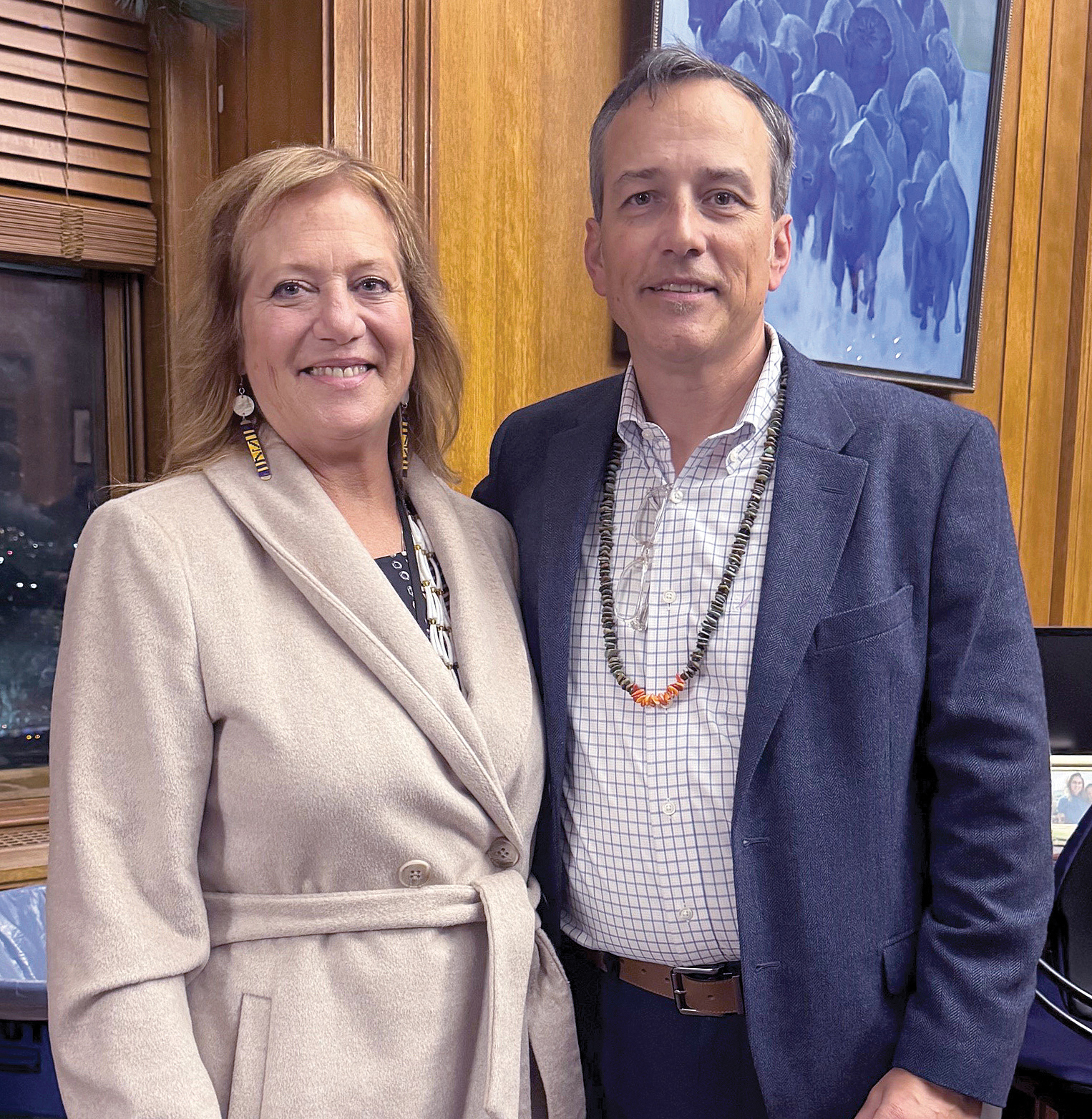Tribal Government & News
Harvey attends Tribal Nations Summit in Washington, D.C.

By Danielle Harrison
Smoke Signals editor
WASHINGTON, D.C. – Staying united, strong and keeping gains made during the past 4 years for Indian Country were key takeaways from the White House Tribal Nations Summit, according to Tribal Council member Denise Harvey.
Harvey attended the summit, held Monday, Dec. 9, as well as an Indian Gaming Association Tribal leader meeting the following day. Harvey serves as the Northwest delegate.
“It was a really positive environment,” she said. “We all know we are in for some changes but there wasn’t any negativity in the room. We talked about the accomplishments that Indian County has been able to make in the last 4 years, and really the message was how do we maintain that and hang onto that. We can assume we won’t get a lot of added benefits in the next administration but if we can hang on to what we’ve been able to achieve the last 4 years, that would be great.”
The White House Tribal Nations Summit, re-initiated by President Joe Biden in 2021, is a time for administration and Tribal leaders from across the country to discuss ways the federal government can strengthen nation-to-nation relationships as well as ensure that progress made in Indian Country continues.
The summit began with the Native American Women Warriors Color Guard bringing in the colors and the Warpaint Drummers of North Carolina performing an opening song, followed by an invocation.
Secretary of the Interior Deb Haaland (Laguna-Pueblo) provided opening remarks.
“Early on in my tenure as secretary – when this building was unfamiliar and the road ahead packed full – I knew one thing for sure: That while my role as secretary was new, my intentions for Indian Country were not,” she said. “I knew that it was my job – our job – to achieve enduring progress for our people with the time we were given. … Transitions are disruptive, regardless of how we might feel about one leader or another. That’s true on Tribal councils, and it’s true in Washington. We don’t know what the future may hold, but what I want to focus on today is the enduring progress we have made – progress that, no matter what, cannot be taken away, as long as we continue to press our voice and our action forward.”
The summit included a panel on investing in Indian Country featuring several federal and Indigenous government leaders, remarks from White House Office of Intergovernmental Affairs Director Tom Perez, followed by lunch prepared by Indigenous chefs from the North American Traditional Indigenous Food Systems.
The afternoon included remarks from White House Domestic Policy Advisor Neera Tanden and Vice President Kamala Harris.
Assistant Secretary for Indian Affairs Bryan Newland (Ojibwe) led a panel on strengthening the nation-to-nation relationship between Tribes and the United States.
Harvey also had the opportunity to visit with Tribal member and Bureau of Indian Affairs Director Bryan Mercier, who was selected for the position in September. Mercier previously served as regional director of BIA’s Northwest region
Harvey had two big surprise moments during the summit: The first was seeing her face on a training consultation video from the Department of Interior and the second was an impromptu selfie with Biden.
“I was surprised the (Secret Service) let me get that close and that Biden knew how to take a selfie,” she said with a smile. “I was trying to get someone to take a photo of us with my phone and he just took mine, put it on selfie mode and took a photo.”
Harvey spent Tuesday, Dec. 10, at the gaming association meeting.
“Knowing the members of Congress and people who came to speak are looking out for us is good,” she said. ‘They know how things are potentially changing but building on those existing relationships is key…There is a responsibility to carry on the (government’s) trust responsibility (to Tribes).”
